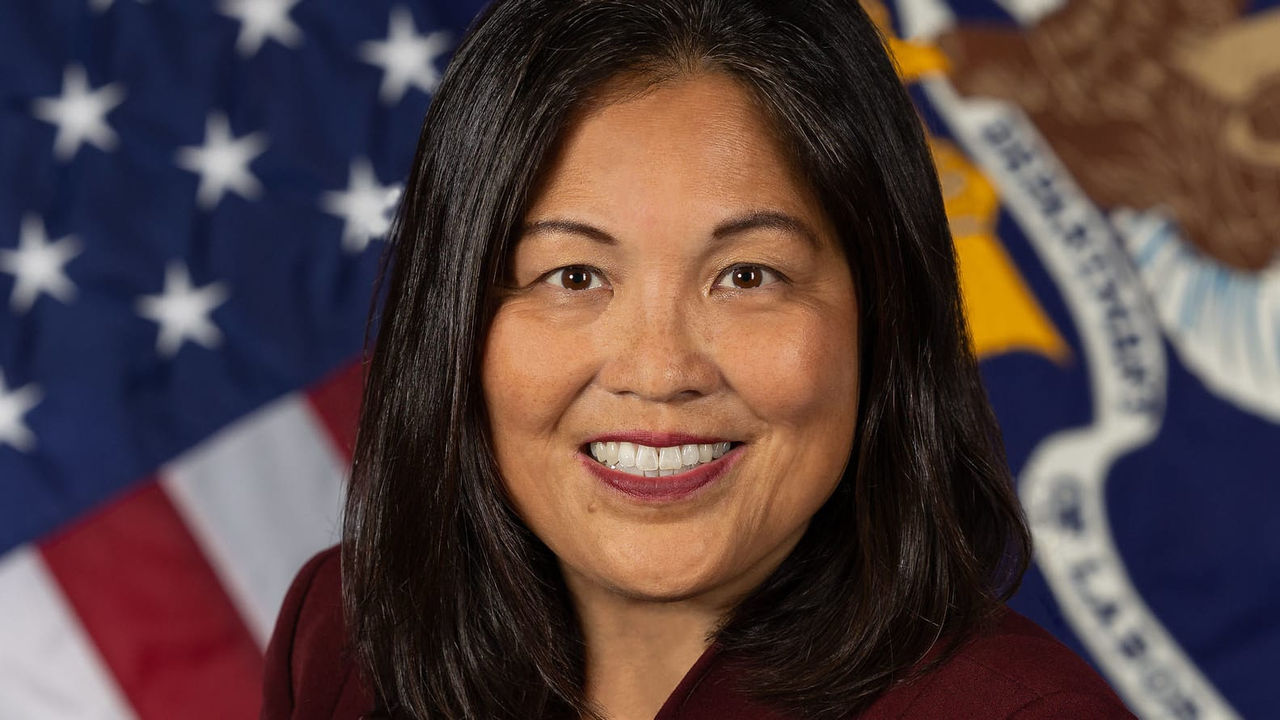Julie Su, President Joe Biden's nominee for U.S. labor secretary, faced intense partisan wrangling at her Senate confirmation hearing on April 20. The support and opposition fell mostly along party lines, as was the case two years ago when Su became deputy labor secretary.
Previously, Su served as California's labor secretary for two years and headed the state's Division of Labor Standards Enforcement for seven years.
Su was born in Wisconsin and grew up in California with parents from China and Taiwan. She earned a law degree from Harvard Law School. In 2001, she received a MacArthur "Genius Grant" for her legal work representing Thai garment workers in California. She co-founded a coalition called Sweatshop Watch, serving low-wage garment workers in the state.
Su "has led the largest state labor department in the nation, cracked down on wage theft, fought to protect trafficked workers, increased the minimum wage, created good-paying, high-quality jobs, and established and enforced workplace safety standards," Biden said in a statement.
At the hearing, Su said she wanted to expand the American dream for all in the U.S. "Too many people still work full time year-round and live in poverty. Too many are denied a fair day's pay for a fair day's work," she said. "Working people, when given a chance to organize to be heard, not only make things better for themselves, but help to bring the American dream within reach to those around them."
Supporters Praise Su's Qualifications
Sen. Alejandro Padilla, D-Calif., said Su has been an effective deputy labor secretary and a "relentless defender of the rights and dignity of workers. … Her experience and qualifications are unmatched."
Sen. Bernie Sanders, I-Vt., said, "No one can tell us with a straight face that Ms. Su is unqualified for this position. In fact, she is extremely well-qualified. This debate really has everything to do with the fact that Julie Su is a champion of the working class of this country who will stand up against the force of corporate greed." He added that the U.S. needs a labor secretary who is strong on labor law enforcement, particularly regarding restrictions on child labor.
Sen. Tina Smith, D-Minn., described Su as solutions-oriented and well-respected by business and labor leaders who have worked with her.
Some of the country's biggest labor unions, including the AFL-CIO, the Service Employees International Union, the Teamsters union and the United Mine Workers, support Su's nomination.
Likewise, the African American Alliance of Community Development Financial Institutions, the California Chamber of Commerce, the National Asian/Pacific Islander American Chamber of Commerce and Entrepreneurship, the National LGBT Chamber of Commerce, Small Business for America's Future, Small Business Majority and the United States Hispanic Chamber of Commerce have also backed Su's nomination.
Opponents Say Su Is Against Businesses
Sen. Bill Cassidy, R-La., said the U.S. needs a labor secretary who is "fair and unbiased," not an "activist." He said Su "has a history of bias and no direct experience handling labor disputes."
Sen. Mitt Romney, R-Utah, told Su that it's hard to understand "how we can have any confidence that you'd be seen as an unbiased, neutral arbiter, but instead would be biased in such a way that businesses associations are not going to be able to trust the Department of Labor to play a meaningful role."
Su said she worked closely with former Labor Secretary Marty Walsh on high-profile negotiations with the rail unions and rail employers last year, which prevented a railway strike.
Cassidy criticized Su for her role in enforcing California's AB 5, which was passed in 2019, and the "ABC test" for determining when workers should be classified as employees.
Su said she would not push to implement a similar ABC test nationwide, noting that only Congress has the authority to do so.
Cassidy also blamed Su for an increase in fraud in California's unemployment benefits program during the pandemic. "This mismanagement does not inspire confidence that Ms. Su can run a multibillion-dollar organization," he said.
Su said she stopped the automatic backdating built into the unemployment benefits program in order to prevent fraud.
Sen. Markwayne Mullin, R-Okla., disputed Su's qualifications for the job because she hasn't owned or run a business herself. Her parents owned a dry cleaning and laundromat business, along with a franchise pizza restaurant.
Among its many duties, the DOL administers various provisions of the federal Immigration and Nationality Act. Sen. Tommy Tuberville, R-Ala., said Su "consistently worked to oppose and block efforts to stop illegal immigration."
The National Federation of Independent Business, the National Council of Chain Restaurants, the National Franchisee Association, the National Grocers Association, the National Restaurant Association, the National Retail Federation, the Small Business & Entrepreneurship Council, the Workforce Fairness Institute and the Workplace Policy Institute have opposed Su's nomination.
An organization run by AI is not a futuristic concept. Such technology is already a part of many workplaces and will continue to shape the labor market and HR. Here's how employers and employees can successfully manage generative AI and other AI-powered systems.




